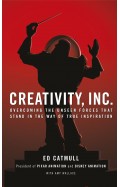A Perfect Mess: The Hidden Benefits Of Disorder
By: Eric Abrahamson
-
Rs 445.50
- Rs 495.00
- 10%
You save Rs 49.50.
Due to constant currency fluctuation, prices are subject to change with or without notice.
Like the bestselling Freakonomics or Blink, here is a book that combines a professor's expertise with stories from everyday life to provide a striking new view of how our world works. Ever since Einstein¿s study of Brownian Motion, scientists have understood that a little disorder actually makes systems more effective. But most people still shun disorder, or suffer guilt over the mess they can¿t avoid.
No longer! With a spectacular array of anecdotes and case studies of the useful role mess can play, here is an antidote to the accepted wisdom that tight schedules, neatness and consistency are the keys to success. Drawing on examples from business, parenting, cooking, the war on terrorism, retail and even the meteoric career of Arnold Schwarzenegger, co-authors Abrahamson and Freedman demonstrate that moderately messy systems use resources more efficiently, yield better solutions and are harder to break than neat ones.
A PERFECT MESS will help readers assess what the right amount of disorder is for a given system, and how to apply these ideas on to a large scale ¿ government or society - and on a small scale ¿ (in your attic, kitchen or office). A PERFECT MESS will forever change the way we think about those unruly heaps of paper on our desks.
| Book | |
| What's in the Box? | 1 x A Perfect Mess: The Hidden Benefits Of Disorder |
Like the bestselling Freakonomics or Blink, here is a book that combines a professor's expertise with stories from everyday life to provide a striking new view of how our world works. Ever since Einstein¿s study of Brownian Motion, scientists have understood that a little disorder actually makes systems more effective. But most people still shun disorder, or suffer guilt over the mess they can¿t avoid.
No longer! With a spectacular array of anecdotes and case studies of the useful role mess can play, here is an antidote to the accepted wisdom that tight schedules, neatness and consistency are the keys to success. Drawing on examples from business, parenting, cooking, the war on terrorism, retail and even the meteoric career of Arnold Schwarzenegger, co-authors Abrahamson and Freedman demonstrate that moderately messy systems use resources more efficiently, yield better solutions and are harder to break than neat ones.
A PERFECT MESS will help readers assess what the right amount of disorder is for a given system, and how to apply these ideas on to a large scale ¿ government or society - and on a small scale ¿ (in your attic, kitchen or office). A PERFECT MESS will forever change the way we think about those unruly heaps of paper on our desks.
A Perfect Mess: The Hidden Benefits Of Disorder
By: Eric Abrahamson
Rs 445.50 Rs 495.00 Ex Tax :Rs 445.50
Zubin Mehta: A Musical Journey (An Authorized Biography)
By: VOID - Bakhtiar K. Dadabhoy
Rs 892.50 Rs 1,050.00 Ex Tax :Rs 892.50
You Know Youre MiddleAged When...
By: Allison Vale & Alison Rattle
Rs 505.75 Rs 595.00 Ex Tax :Rs 505.75
The 4 Hour Work Week Escape The 9 5 Live Anywhere And Join The New Rich
By: Timothy Ferriss
Rs 2,695.50 Rs 2,995.00 Ex Tax :Rs 2,695.50
What They Dont Teach You at Harvard Business School: Notes from a StreetSmart Executive
By: Mark H. Mccormack
Rs 3,415.50 Rs 3,795.00 Ex Tax :Rs 3,415.50
The Lean Startup How Constant Innovation Creates Radically Successful Businesses
By: Eric Ries
Rs 3,415.50 Rs 3,795.00 Ex Tax :Rs 3,415.50
Great By Choice: Uncertainty Chaos And Luck Why Some Thrive Despite Them All
By: Jim Collins
Rs 5,395.50 Rs 5,995.00 Ex Tax :Rs 5,395.50
Like A Virgin Secrets They Wont Teach You at Business School - (PB)
By: Sir Richard Branson
Rs 1,440.75 Rs 1,695.00 Ex Tax :Rs 1,440.75
Creativity, Inc.: Overcoming the Unseen Forces That Stand in the Way of True Inspiration
By: Ed Catmull
Rs 3,595.50 Rs 3,995.00 Ex Tax :Rs 3,595.50
The Everything Store Jeff Bezos and the Age of Amazon
By: Brad Stone
Rs 1,705.50 Rs 1,895.00 Ex Tax :Rs 1,705.50
You Know Youre MiddleAged When...
By: Allison Vale & Alison Rattle
Rs 505.75 Rs 595.00 Ex Tax :Rs 505.75
No recently viewed books available at the moment.
Zubin Mehta: A Musical Journey (An Authorized Biography)
By: VOID - Bakhtiar K. Dadabhoy
Rs 892.50 Rs 1,050.00 Ex Tax :Rs 892.50
A Perfect Mess: The Hidden Benefits Of Disorder
By: Eric Abrahamson
Rs 445.50 Rs 495.00 Ex Tax :Rs 445.50
You Know Youre MiddleAged When...
By: Allison Vale & Alison Rattle
Rs 505.75 Rs 595.00 Ex Tax :Rs 505.75












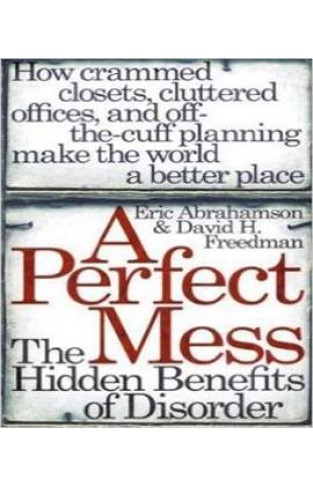
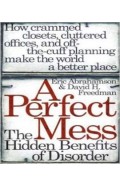
-120x187.jpg?q6)







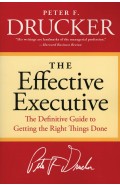
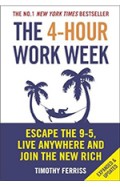
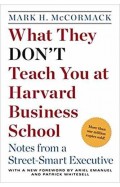
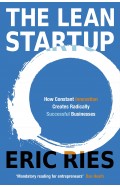
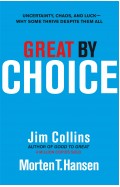
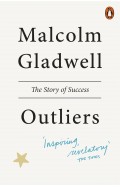
-120x187.jpg?q6)
